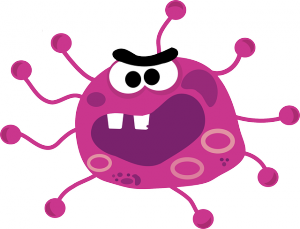Dating? And Me?
Yes, a million times yes! Dating has been a part of this world since year zero. Dating is the first step to finding love and a happily ever after, along with being a tonne of fun! However, it is not as easy as it may seem, given the various problems that could arise. Herpes is just one of those issues, one that is usually hard to accept. Therefore, is it not wise to just avoid all the trial-and-error and get right to your Mr/Ms Right? Yes, we thought so too!
But… What Do I Do?
Below are some factors that will help you understand dating a little better and help you find the perfect partner for yourself:
Avoid: Focusing on Just the Chemistry
We completely understand the struggle of finding someone who makes you want to hang on to every word of theirs. In fact, dating can be tough like that; you will need to sift through a pile of people till someone comes along who just grabs your attention like it is no big deal. However, being blindly attracted to them, only because of the chemistry between you two, is not really a smart move.
For instance, if the person has herpes, would you actually want to take the risk of acquiring it, only because you two have this sizzle going on between you two? If your brain says “yes”, pay it no heed! This is because after you sleep with this person, find out that you have contracted herpes from them, only you would feel foolish, cursing yourself for being so driven by just attraction.
We do not mean that you are not entitled to find someone with similar interests and a great face/body. What we are trying to imply is, please do not be blinded by JUST the magnetism.
Embrace: Keeping a Good Vibe on
Do not let your past get to you. Whatever bad things have happened, learn from those and keep strong. There is a good chance that you WILL come across someone who makes the long wait feel like it was worth it. Then, all your past worries and miseries will not matter anymore.
Avoid: Being Wary of Finding Love
Of course, dating is not going to be easy, especially if you have had your fair share of failures. Yes, dating could get you highly exasperated and furious at times. However, do not give up! If you think you will not find love or that you will not even come across people who are your type, you are wrong. Maybe, all you need is to just give it some time. You must remember that losing hope and limiting your choices will not help at all; you will lose before you win. Get out there, show some enthusiasm and scout out some new, interesting people who could help you enjoy life. Who knows, you might find love soon.
Embrace: Being Fond of Your Partner
You know what absolutely kills the spark between you and a potential lover? That would be trying to turn the relationship into a series of counselling sessions. Yes, you can speak to your partner about your pet peeves, daddy issues and other personal stuff, but not at the first go! No one likes to be a punching bag or a therapist for the person they are dating. There will be a time when you find peace and comfort in each other’s presence, after some time of dating. Then, feel free to share everything. Till then, try to keep your relationship lively and enjoyable, so that your partner just cannot get enough of you.
Avoid: Do not Let Your Expectations Go Sky-high
Yes, people keep telling you that you deserve better than the last guy you dated. However, this does not mean that you need to let your expectations go unbelievably, dangerously high. Chances are, you will be disappointed. Besides, if you keep your expectations to somewhere average, you might be blown away when Mr/Ms Right comes walking through your door. Remember, being realistic is the key!
Embrace: Asking Your Partner if They Are Clean
Hey, there is no shame in that! Sexually transmitted diseases are common in several regions of the world. Herpes, Chlamydia, AIDS are just some of them, each having its own set of consequences. Do you want to contract any of these? Absolutely not! Therefore, when you are certain that you have found someone you want to be intimate with, ask them if they are clean. Your body is going to thank you for it!



 Since herpes is a sexually transmitted disease, you will need to be protected during sexual intercourse at all times, especially if your partner has genital herpes. Probably the best way to keep yourself safeguarded is by making use of condoms during sexual intercourse. Although, new study discoveries show that condoms merely reduce the risk of acquiring genital herpes from others, but does not completely eliminate the chances. How is that possible, you ask? Researchers carried out polls and have found that individuals who use condoms steadily have about 30% reduced risk than those who do not use them. This is disappointing when we consider how condoms work better in terms of preventing the contraction of the HIV virus. This 30% is only because herpes is from skin contact, which means even the area that is not covered by the condom could help spread the infection.
Since herpes is a sexually transmitted disease, you will need to be protected during sexual intercourse at all times, especially if your partner has genital herpes. Probably the best way to keep yourself safeguarded is by making use of condoms during sexual intercourse. Although, new study discoveries show that condoms merely reduce the risk of acquiring genital herpes from others, but does not completely eliminate the chances. How is that possible, you ask? Researchers carried out polls and have found that individuals who use condoms steadily have about 30% reduced risk than those who do not use them. This is disappointing when we consider how condoms work better in terms of preventing the contraction of the HIV virus. This 30% is only because herpes is from skin contact, which means even the area that is not covered by the condom could help spread the infection. Instead of catching oral herpes, passing it on to your child/children, the best thing you could do is try to keep them safe from the virus itself. Children are young and do not understand the fact that they should not be sharing different things with you or whoever has oral herpes. Therefore, it is up to you to make sure that all areas that have come in contact with your sores need to be washed thoroughly.
Instead of catching oral herpes, passing it on to your child/children, the best thing you could do is try to keep them safe from the virus itself. Children are young and do not understand the fact that they should not be sharing different things with you or whoever has oral herpes. Therefore, it is up to you to make sure that all areas that have come in contact with your sores need to be washed thoroughly. Experts say that at least 24 million Americans are attacked by the human papillomavirus, which happens to have at least 100 different strains. While there a few of these that only cause genital warts, others are transmitted via sexual contact with no protection used. The second type could be harmless though, which comes as a relief. Unfortunately, there are 14 types of human papillomavirus that lead to an aggressive case of cervical cancer. As a matter of fact, about 90% of all cervical cancer and other genital cancer cases are due to these 14 human papillomavirus.
Experts say that at least 24 million Americans are attacked by the human papillomavirus, which happens to have at least 100 different strains. While there a few of these that only cause genital warts, others are transmitted via sexual contact with no protection used. The second type could be harmless though, which comes as a relief. Unfortunately, there are 14 types of human papillomavirus that lead to an aggressive case of cervical cancer. As a matter of fact, about 90% of all cervical cancer and other genital cancer cases are due to these 14 human papillomavirus. In recent times, the media has been trying to raise awareness of herpes since it targets such a large portion of the human population. It is worst for youngsters, since they have a higher chance of contracting genital herpes. Studies and polls helped discover that over 40% of grade 9 students and more than 70% of high school students have sex, which is probably how the spread herpes to one another. What is upsetting is the fact that they do not know that they have acquired genital herpes, especially since there is a lack of symptoms on the body. As a matter of fact, out of all the people that have been diagnosed this year with herpes, only 10% were aware of genital herpes and its consequences.
In recent times, the media has been trying to raise awareness of herpes since it targets such a large portion of the human population. It is worst for youngsters, since they have a higher chance of contracting genital herpes. Studies and polls helped discover that over 40% of grade 9 students and more than 70% of high school students have sex, which is probably how the spread herpes to one another. What is upsetting is the fact that they do not know that they have acquired genital herpes, especially since there is a lack of symptoms on the body. As a matter of fact, out of all the people that have been diagnosed this year with herpes, only 10% were aware of genital herpes and its consequences.